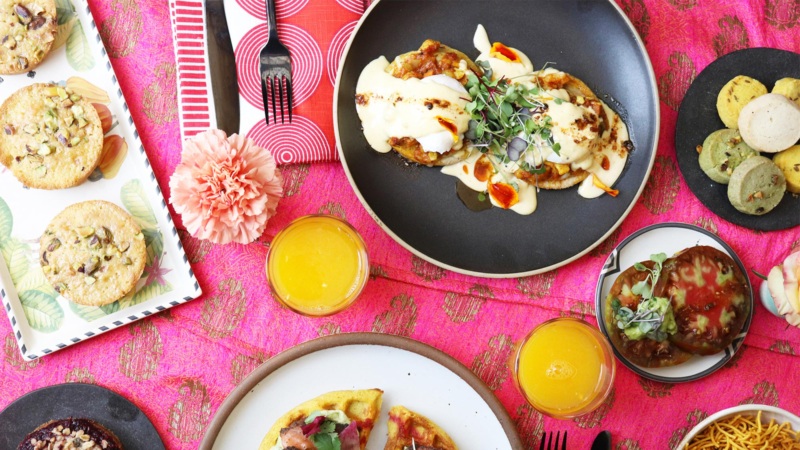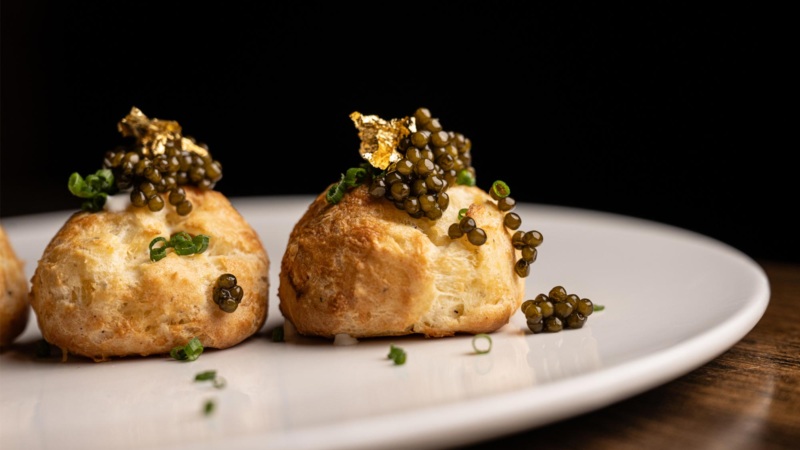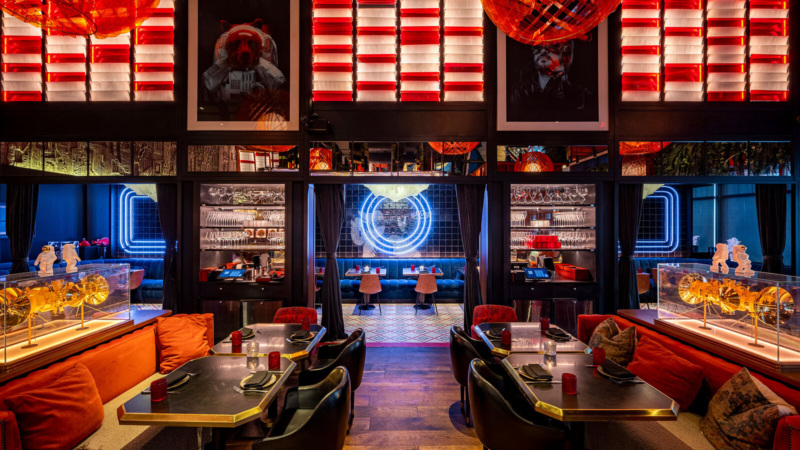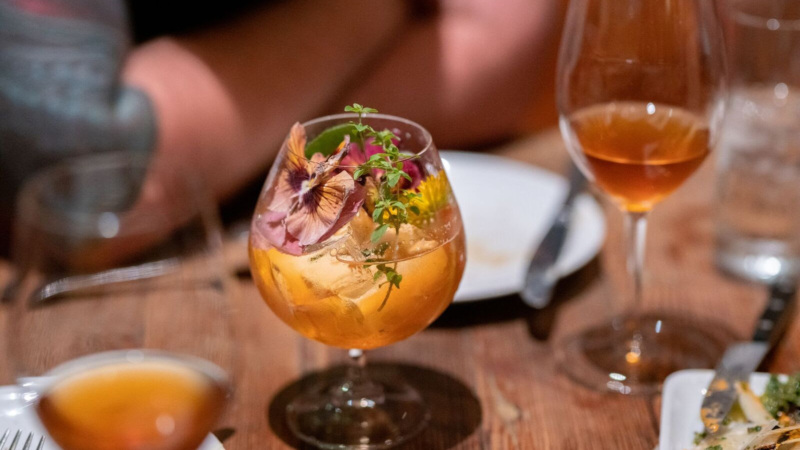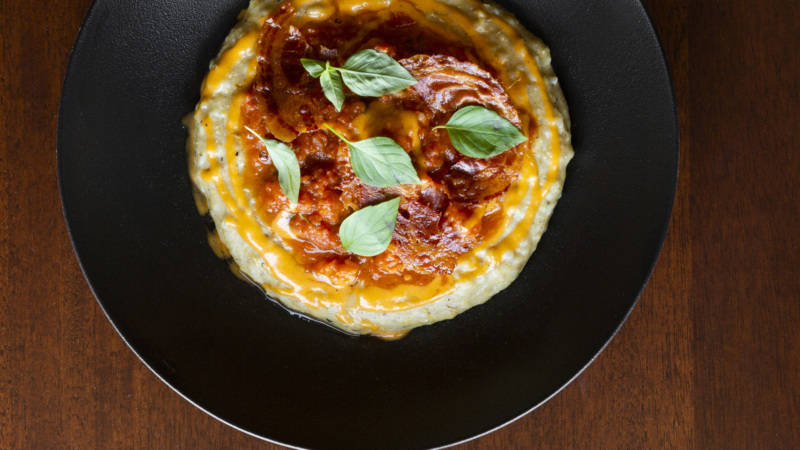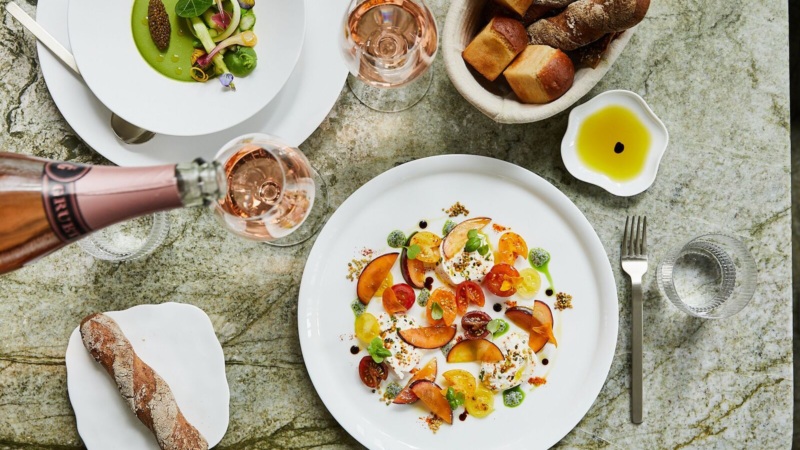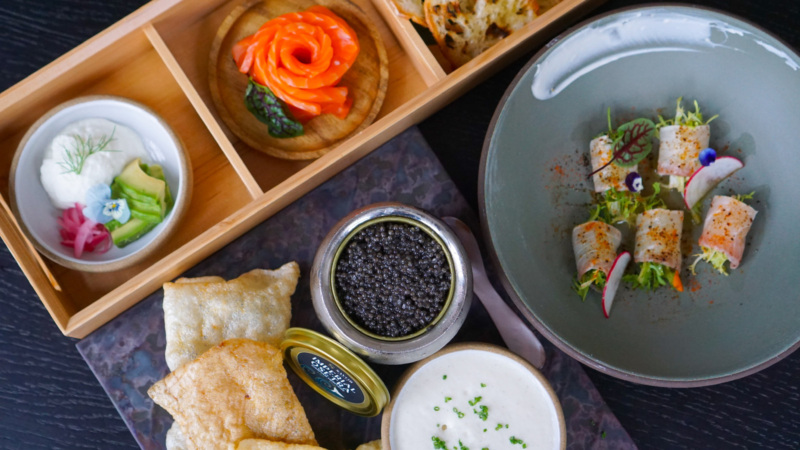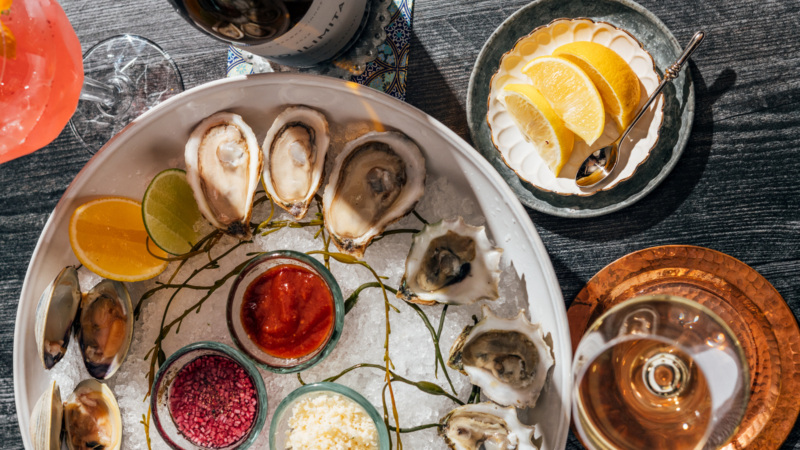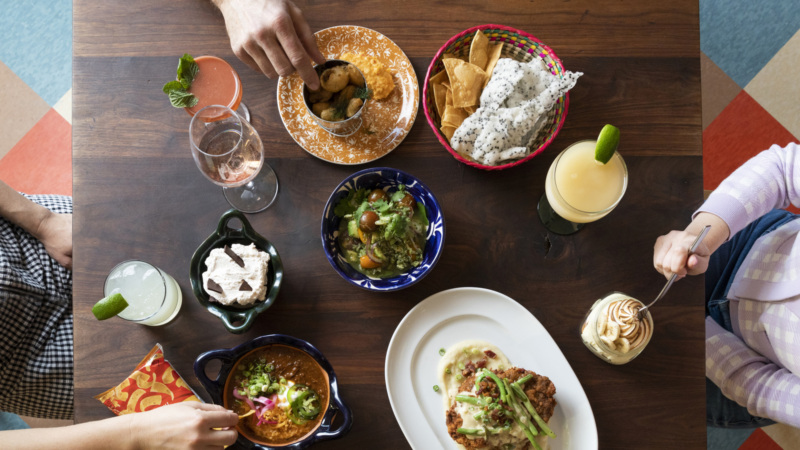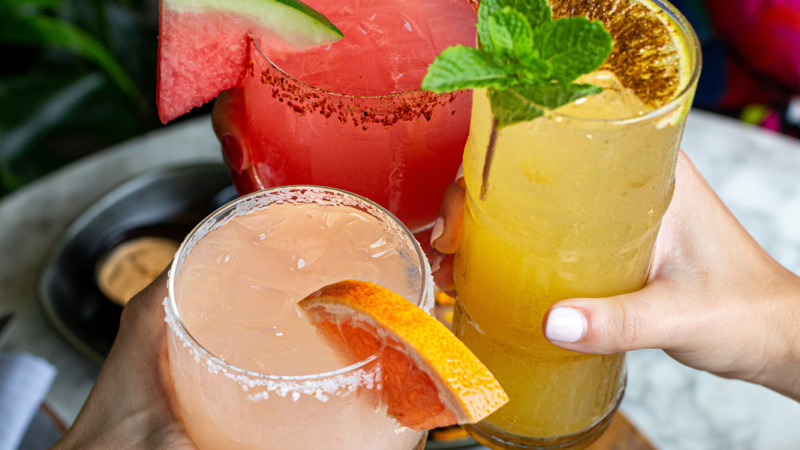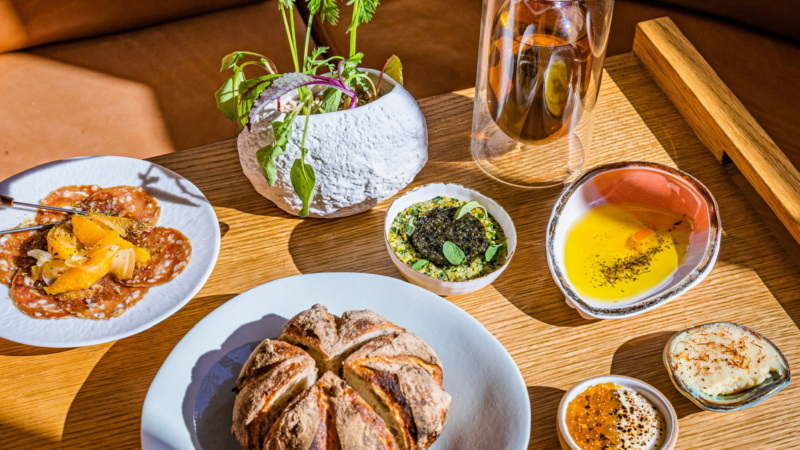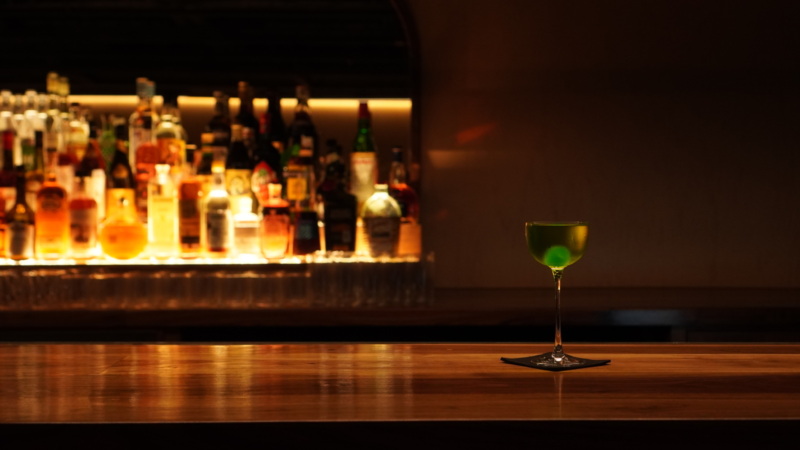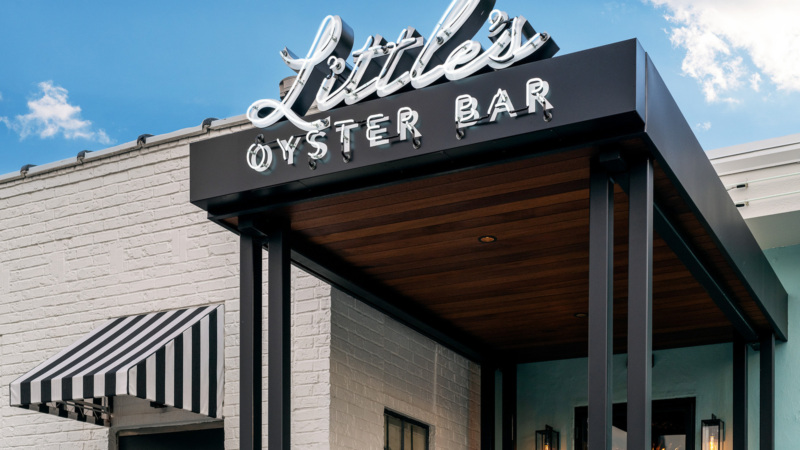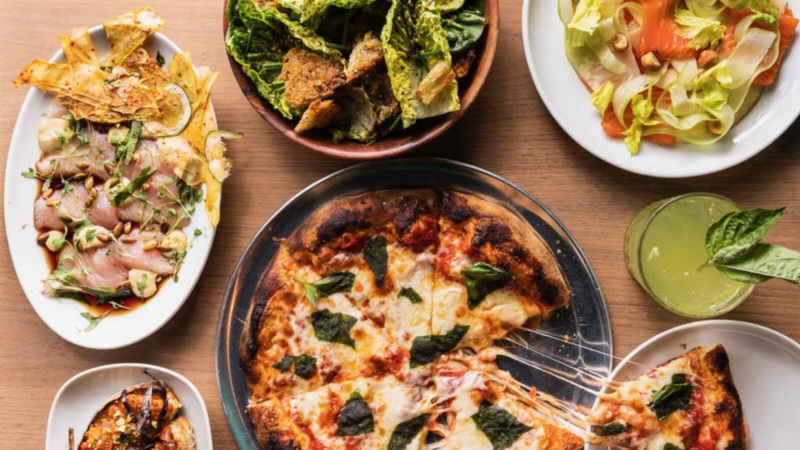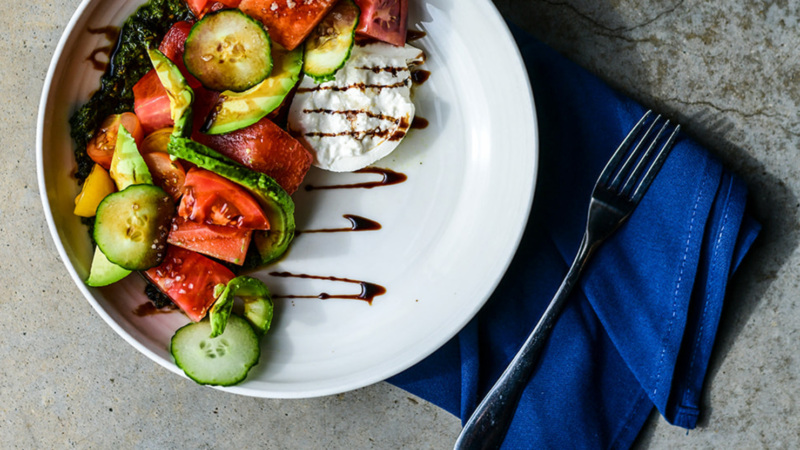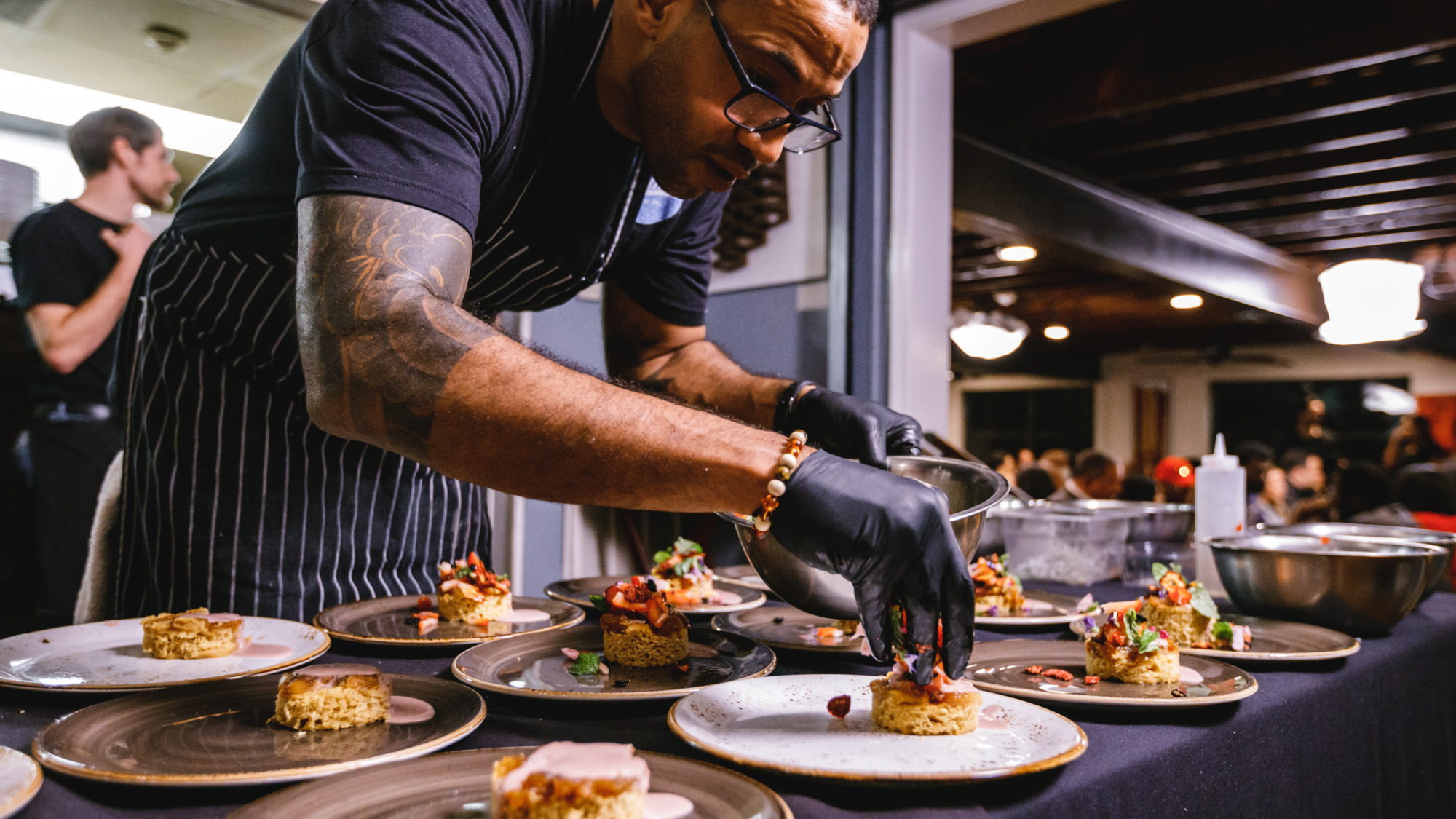
I Thought The Pandemic Would Kill My Restaurant, But It’s Only Made It Stronger
As part of an ongoing series hoping to explore the experiences of restaurant owners and workers during the COVID-19 pandemic and lockdown, we are sharing perspectives from those on the frontline.
Chef-owner Chris Williams opened Lucille’s restaurant in Houston in 2012 with his brother, Ben. The restaurant is named for his great-grandmother, Lucille Elizabeth Bishop Smith, an educator, chef, and successful food entrepreneur who invented the first hot-roll mix to be marketed in America.
Lucille’s has remained open throughout the pandemic. Chris Williams’ words follow.
*****
When this whole pandemic came down, I was terrified.
Over the years, we’ve been able to build up a clientele that’s completely diverse. It looks like my staff. Everyday in my dining room, you’ll see everybody. Asian, Latinx, African American, White. Everybody. They come in, and they’re breaking bread, if not together, in the same space comfortably. It’s a beautiful thing.
I thought this pandemic was going to kill that. Not only were people scared to be around each other — frankly, I still am a little bit — but it was mandatory to maintain your distance. I was on the fence about whether I even wanted to continue to have this restaurant and to keep it open.
The only reason why I still do it is because I love my staff, my team, my family.
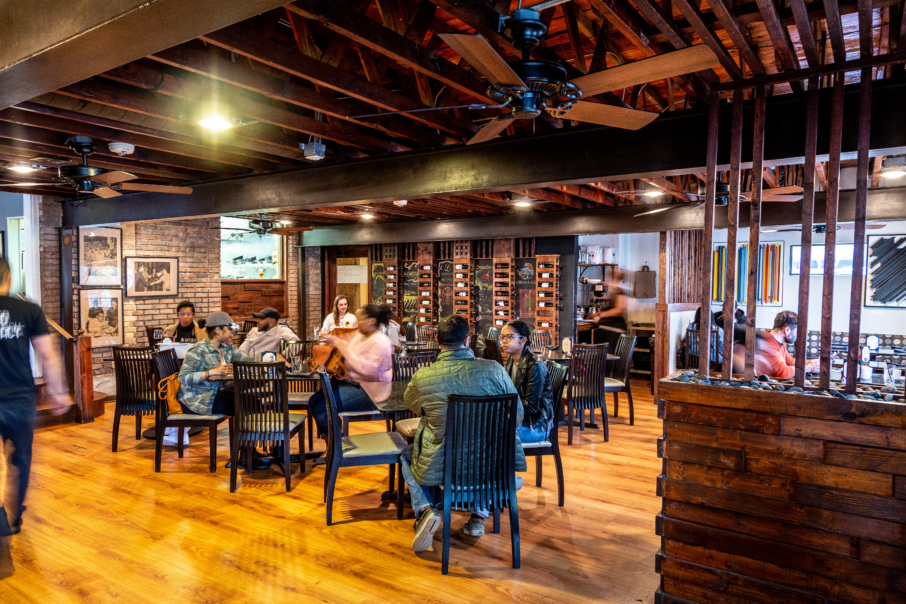
If you know anything about restaurants, a significant portion of the team is either unable or uncomfortable with taking government assistance. As the owner, I had to make sure they were whole. Everybody is out of work. All these restaurants and businesses were shuttering.
I couldn’t allow my team to be out there unemployed. We switched over our model to do takeout, and we dropped all the prices by over 40% across the board and streamlined the menu to keep our costs down. My goal was to cover our costs and keep our staff making exactly what they were making before the world changed.
We were able to do that, and in our first week, we brought in eight times more than what I projected our numbers needed to be. That meant I could bring back more people. We were able to retain 75% of our staff during this whole thing. I was able to close the restaurant for a week to repair the floors, and all the staff was able to take a paid staycation.
A month or so into the pandemic, we took the extra money that we were making, and started donating to the hospital workers who work those overnight shifts for six straight weeks. After that, we donated nearly 10,000 meals through World Central Kitchen.
Then, four weeks ago, we started donating meals on our own. We launched this initiative, called Lucille’s 1913. It’s named for the year that my great grandmother launched her own community catering business because she saw a need, so she stepped up and started doing it. We’re spending about $7,000 of our own money every week to donate 5,000 meals each week to about 490 different people living in assisted living communities. They’re the people who are at greatest risk because of the pandemic.
The money goes back into our community and especially to the local farmers we buy from; we take whatever surplus they have and we make it work. I was able to hire back 12 employees full time for this.
Now, we’re having people call us up, asking if they can donate money so we can feed other people in need, like unemployed bar employees, or to donate meals to frontline workers at Lyndon B. Johnson Hospital, which is cash strapped right now. It’s good to see how this is inspiring people to act.
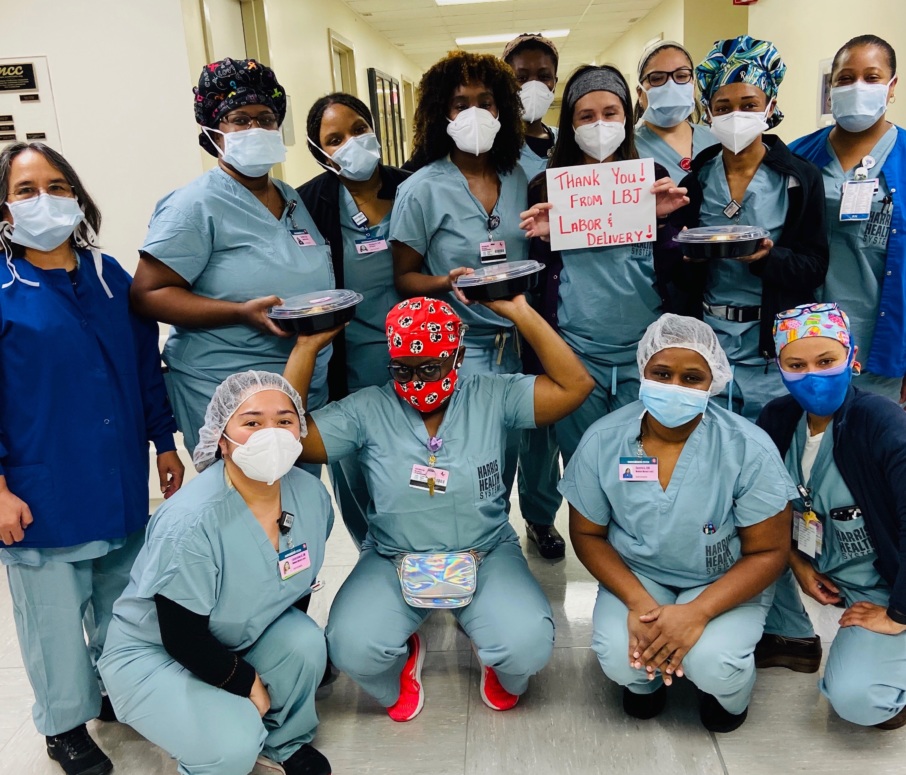
*****
Four weeks ago, we also decided to open up the bar on our patio to local bars that have had to recently close. Once a week, we let a different bar come in with their entire team, and they do a bar takeover; 100% of the sales and tips from that patio bar go straight back to that bar. The first bar we teamed up with was Alley Kat. Right now, we’re doing this just once a week but we hope to do this as many as two to three times a week from Tuesdays to Thursdays by next month.
Beam Suntory, the company behind whiskey brands Jim Beam and Suntory, also put their full weight behind the initiative, organizing a competition among local bars and bartenders, and supplying the alcohol for it, too.
It’s just been a wonderful opportunity that gives these bars’ guests an opportunity to support the bars, and to also enjoy themselves, responsibly, and safely. It really makes a difference. There’s no way that some of these bar employees can collect unemployment again, especially since they just shut down the bars here in Houston. People who were filing for unemployment back in March are still having trouble.
*****
We took profitability out of the equation. It was just all about sustainability for our family. There was this amazing amount of support from people who came out because we were very transparent about what we were doing — and why we were doing it. And we want to do it the right way.
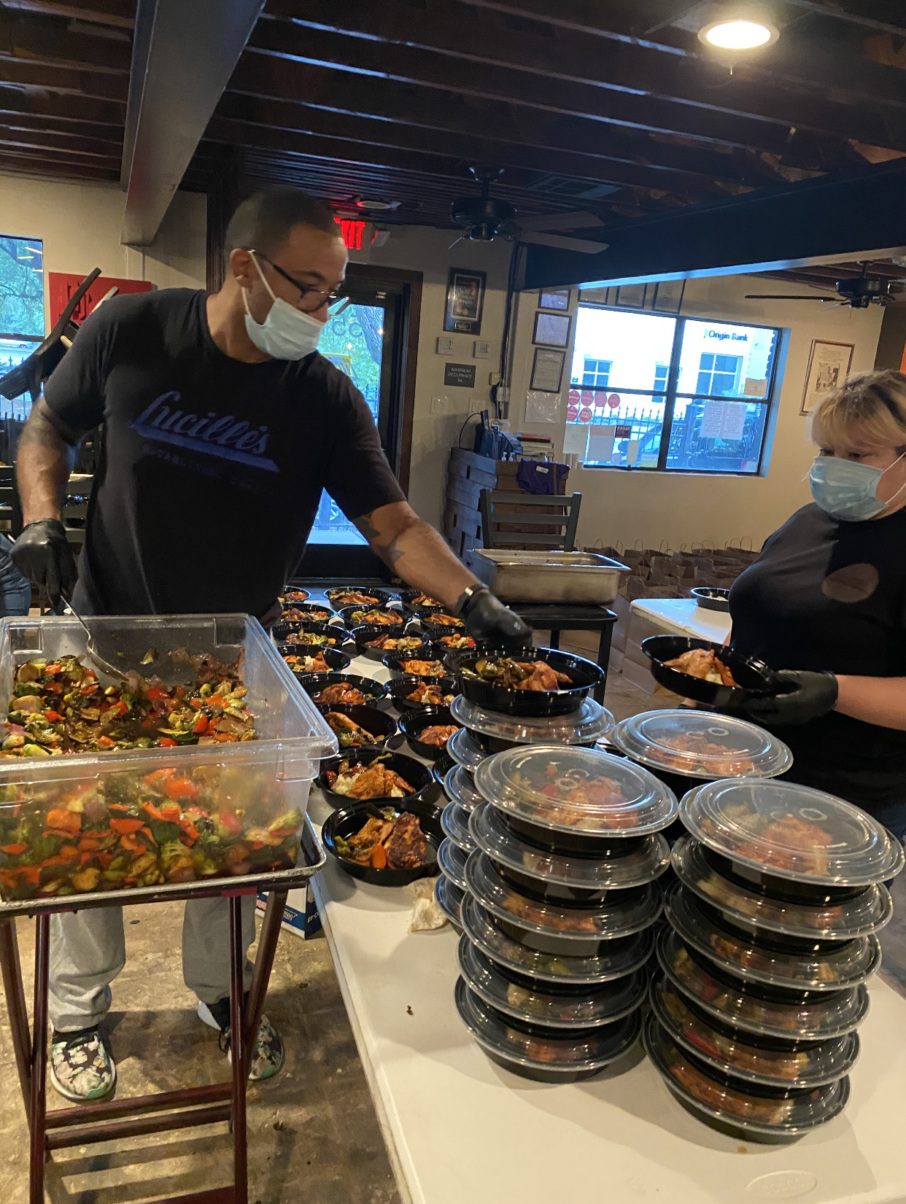
Everything I thought would be taken away because of the pandemic, it’s still there. We’re still the restaurant we worked so hard to establish.
Without a doubt, the restaurant is stronger. We are stronger. These moments — Hurricane Harvey, Hurricane Maria, and now, the pandemic — these things are opportunities to show your grit. To see what you’re made of. You can put your hand out and say, “Woe is me,” or you can step up and try to make it work, not just for yourself, but for others. That’s what this was all about.
As told to Deanna Ting.
Chris Williams is the chef and owner of Lucille’s in Houston. If you’d like to donate meals for Lucille’s 1913 initiative, please call (832) 802-7136 or click here.

